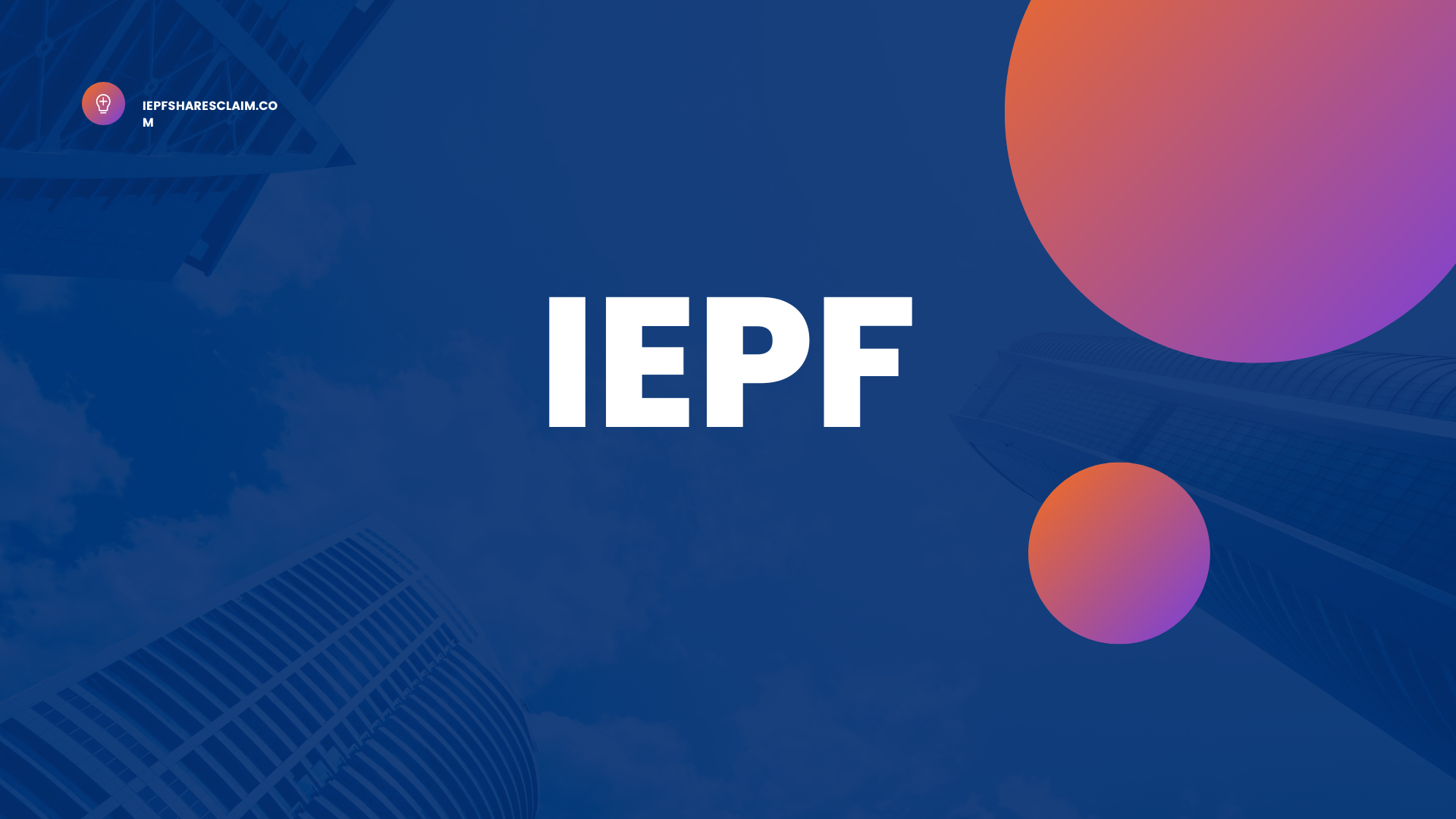Investor Education and Protection Fund (IEPF) is for promotion of investors’ awareness and protection of the interests of investors. This website is an information providing platform to promote awareness, and it does not offer any investment advice or evaluation.
It is a fund set up to pool in all the dividends of the Asset Management Companies, matured deposits, share application interests or money, debentures, interests, etc. that are unclaimed for seven years. All the money collected from these sources has to be transferred to IEPF. Investors, who are trying to seek a refund for their unclaimed rewards can now do so from the Investor Protection and Education Fund (IEPF). The fund has been set up under the guidance of SEBI and the Ministry of Corporate Affairs India (MCA).
Why Was IEPF Introduced?
IEPF concept was introduced initially with the idea of using the investor’s money for their benefits such as investor’s education, investor’s awareness programme. Later in 2016, the government made it mandatory the transfer of underlying shares on which dividends had not been claimed for the last seven consecutive years. This gave rise to ambiguities with respect to the process of transferring the same to the government and certain other confusions among all the stakeholders. Therefore, this was amended by the MCA several times including the recent amendment, dated 14th August, 2019 through which the process has been simplified.
Search Unclaimed/Unpaid Amounts
Companies retains dividends, deposits, Share Application Money and debentures, for seven years with them for payment to investors and after expiry of seven years, transfer the said amount to IEPF. The details of such amounts which are due to be transferred to IEPF, and still lying with company are available. This facility may be availed by clicking Search Unclaimed/Unpaid Amount.
Section 125 of the Companies Act, 2013
This Act states that:
Sub-section(1), the central government of India shall make a fund called the Investor Education and Protection Fund. (Here, the word ‘fund’ means IEPF)
Sub-section(2)
(a) The Central Government by way of grants for being utilized for the purposes of the fund (IEPF) provides a certain amount by the law which should be credited to the IEPF;
(b) There are various institutions and government bodies which provide donations to credit the IEPF;
(c) According to Sub-section(5) of section 124 of the Companies Act,2013 the fund ie, the IEPF shall be credited by the amount of money kept in the unpaid or unclaimed dividend account of that company;
(d) According to Sub-section(5) of section 205A of the Companies Act, 1956 the fund which is the IEPF shall be added by the amount of money in the general revenue account of the central government;
(e) According to section 205C of the Companies Act, 1956 section 205C is the Act which governed IEPF in 1956 until 2013 when new Act came into existence) the fund should be added by the amount in the IEPF;
f) The fund should be credited by the interest or other income received out of the investments which is the amount of money invested by number of individuals in a particular company;
g) Under sub-section (4) of section 38 of the Companies Act, 2013; the fund should be credited by the amount received;
(h) The money received by the companies through application for allotment of any securities, the fund should be credited by that amount;
(i) The fund should be credited by companies having matured deposits other than banking companies;
(j) The fund should be credited by companies having matured debentures;
(k) IEPF should be added by the interest earned or incurred by the money received by the companies through application for allotment of securities, matured deposits and matured debentures;
(l) IEPF shall be added by sale proceeds of shares on issue of bonus shares, merger and consolidation for consecutive seven or more; and
(m) IEPF shall be added by recovered preference shares which are unpaid or unclaimed for seven or more than consecutive seven years or more; and(n) The fund should be credited by such other amounts as may be prescribed.
The clauses (h) to (j) shall only form the part of IEPF if such amount remains unclaimed and unpaid for seven consecutive years from the due date.


